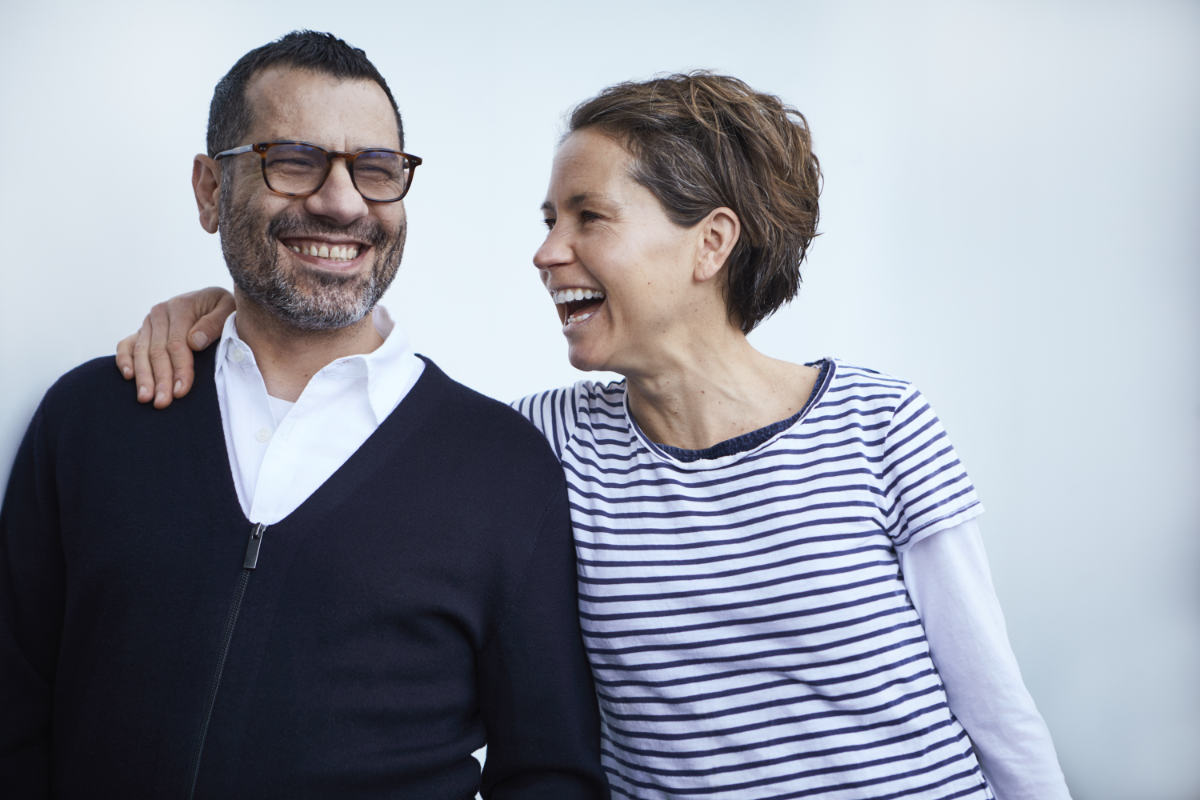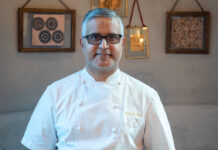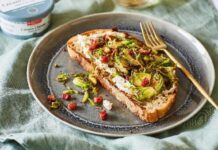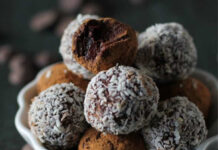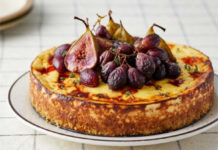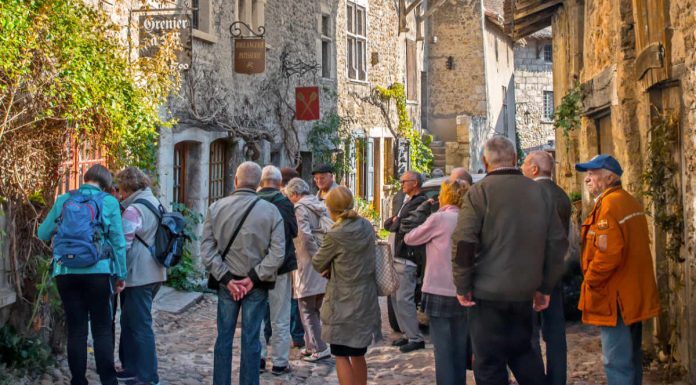Falastin is as much a portal to a place as it is a cookbook.
“In this part of the world, unfortunately, everything that you touch or say, it turns into politics,” says Jerusalem-born chef Sami Tamimi of his homeland – and that very much includes the origin of hummus.
But, adds Tara Wigley, his British-born co-author (both are long-term members of the Ottolenghi brand and family – Tamimi co-wrote Jerusalem, Yotam Ottolenghi’s ground-breaking debut cookery book, to which Falastin is a companion piece), an in-depth knowledge of Israeli-Palestinian relations is not vital to pick up the book and start cooking. Instead, “people who are interested in food – beautiful aubergines and olive oils – should be reading this.”
She calls Falastin a “window through which to see modern day Palestine” but notes that she and Tamimi also “want people to read it and think about something other than the politics. It’s everything and it’s both – there’s never a simple answer.”
The collection is strewn with profiles that tell stories of Palestinian producers and makers, from a granny making cheese in a tumble dryer, to a woman who runs cookery classes in a refugee camp, and a man who sells the nuttiest, silkiest tahini.
“Everyone’s got this strong picture in their head of what living in a refugee camp means, or what Gaza means, and actually we want people to read our book and see that life goes on and people are making a living and doing interesting stuff with food,” says Wigley. “There’s a world there and a life that we want people to explore and go to, eat from and celebrate.”
Palestinians, says Tamimi, are very aware that tourists take “religious buses to go and visit the holy sites, but they’re not eating or stopping there.
“They never see the real life,” he says. “You’re whisked in, whisked out and then you end up in the very touristy shop – and that’s it. You don’t see anything.”
As such, “all the good food’s happening in people’s houses,” says Wigley – and between the profiles and the recipes in Falastin, they’re hoping to bridge that gap, by introducing people to Palestinian food and flavours, while showcasing all the glorious things real Palestinians are doing on a daily basis. Hence why you need two copies: “One to read, one to cook from,” says Wigley with a grin. “Unless you like cooking stains in bed,” chips in Tamimi, smiling. “I don’t mind.”
Mainly though, “it about getting everyone to the table and sharing and eating rather than falling over themselves with semantics,” says Wigley.
Like much of the food of the Levant, Palestinian fare “tastes wonderful” but, admits Tamimi, is “very earthy, a little bit brown and beige,”. So while Ottolenghi wasn’t involved directly in the book, a little Ottolenghi flair “to make everything colourful and appetising with garnish and herbs, colour” was inevitable.
“When you end up with just a brown thing,” muses Tamimi, “you don’t want to even serve it.”
“There’s just no way we could serve a salad unless it was beautiful and bountiful and bold,” agrees Wigley.
The duo have known each other for around a decade. “I spent a couple of days in the kitchen with Sami and I remember hearing him phoning Yotam, going, ‘Who is this girl? Where has she come from? She is not a professional chef’,” recalls Wigley mischievously. “The first time I tried preserved lemon around Sami, I just thought it tasted disgusting, like soap. He was like, ‘She doesn’t even like preserved lemon, who is she?’
“Little did I know that was the beginning of my culinary epiphany.”
Working on Falastin together did, she notes, seem a “possibly incongruous fit” at first because “I ain’t Palestinian”. But their combined, yet different perspectives, she says, make it work: Wigley, the home cook who is still discovering Palestinian cuisine, and Tamimi the professional chef, who is “rooted in Palestine. [The book’s] such a love letter home to him, looking back to this country that he left.” It’s a “tussle” notes Wigley, but one that’s “useful” for the reader.
And yes, they have been known to argue – “lots! We had rows and tears. But we had fun,” admits Tamimi.
“We’ve got very different dispositions,” explains Wigley. “I’m running at that pace, and Sami’s over there chilling.”
But on some issues, they are very much in agreement, like supermarket imitations of falafel. “It’s just awful if people think that’s falafel – and hummus should be warm!” says Wigley.
“I literally cringe,” adds Tamimi with a shake of his head.
“It’s just shocking, we need to be able to campaign to get falafel only freshly fried.”
“They fry it in front of you so it’s piping hot – this is the way we eat it!”
While the book is not a faithful representation of traditional Palestinian food, except in terms of ingredients used (“I would be suggesting quinoa instead of bulgur for example, Sami would just draw a line and say, ‘This is not a Palestinian ingredient’,” notes Wigley) how Palestinians eat is at its core.
“You don’t cook for two people, you cook for 20 people,” says Tamimi. “It’s an open house – you never know who is going to come and it’s a big no-no not to have enough food for everybody.
“Every Palestinian house has a massive freezer that’s full of food ready to go,” he adds.
Being able to lay on a spread at a moment’s notice is the norm – think pickles, olives and thick, green, grassy Palestinian olive oil, honey, cheese, bread, salads, seasonal mains, dips, shatta (a chilli condiment). “And people basically help themselves. There’s no ‘my’ plate or ‘your’ plate – this is what is wonderful about it,” says Tamimi.
“It’s lovely, eating with your hands, using the bread to scoop it up – the bread becomes a utensil – this is the opposite of uptight,” says Wigley. “It’s the beauty of traditions actually being enacted in every house.”
Plus, she adds, it’s not like the sharing plates you often get given here (“They’re so darn small. You’ve got to divide them perfectly!”). Food is bountiful – and if you’re not eating, more morsels will be shoved on your plate. “One meal rolls into the next.”
Falastin: A Cookbook by Sami Tamimi and Tara Wigley, photography by Jenny Zarins, is published by Ebury Press.
Labneh cheesecake recipe with roasted apricots, honey and cardamom
Wise Living Magazine may receive a small commission to help support the running of this site from purchases made from links on this page. Affiliate links do not influence our editorial or articles published by Wise Living.























































